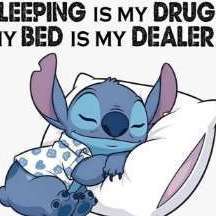-
Welcome to Celiac.com!
You have found your celiac tribe! Join us and ask questions in our forum, share your story, and connect with others.
-
Celiac.com Sponsor (A1):
Celiac.com Sponsor (A1-M):
-
Get Celiac.com Updates:Support Our Content
-
Get Celiac.com Updates:Support Celiac.com:
-
Celiac.com Sponsor (A17):
Celiac.com Sponsor (A17):
Celiac.com Sponsors (A17-M):
-
Recent Activity
-
0
-
- trents replied to Atl222's topic in Post Diagnosis, Recovery & Treatment of Celiac Disease6
Increased intraepithelial lymphocytes after 10 yrs gluten-free
Cristiana, that sounds like a great approach and I will be looking forward to the results. I am in the same boat as you. I don't experience overt symptoms with minor, cross contamination level exposures so I sometimes will indulge in those "processed on equipment that also processes wheat . . ." or items that don't specifically claim to be gluten free but... -
- cristiana replied to Atl222's topic in Post Diagnosis, Recovery & Treatment of Celiac Disease6
Increased intraepithelial lymphocytes after 10 yrs gluten-free
I've been reflecting on this further. The lowest TTG I've ever managed was 4.5 (normal lab reading under 10). Since then it has gone up to 10. I am not happy with that. I can only explain this by the fact that I am eating out more these days and that's where I'm being 'glutened', but such small amounts that I only occasionally react. I... -
0
Celiac Friendly Sports Camps - Academy Camps - Virtual Open House
untilHi everyone, I’m Mike, one of the co-founders of Academy Camps, a sleepaway sports camp for kids ages 10 to 16. I’m posting here because one of our camp families whose daughter has Celiac encouraged me to share our experience wit...
-






Recommended Posts
Create an account or sign in to comment
You need to be a member in order to leave a comment
Create an account
Sign up for a new account in our community. It's easy!
Register a new accountSign in
Already have an account? Sign in here.
Sign In Now